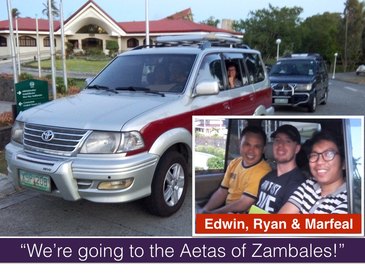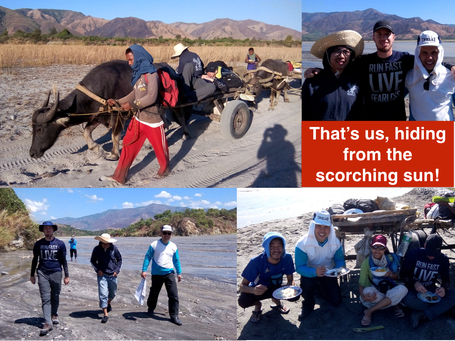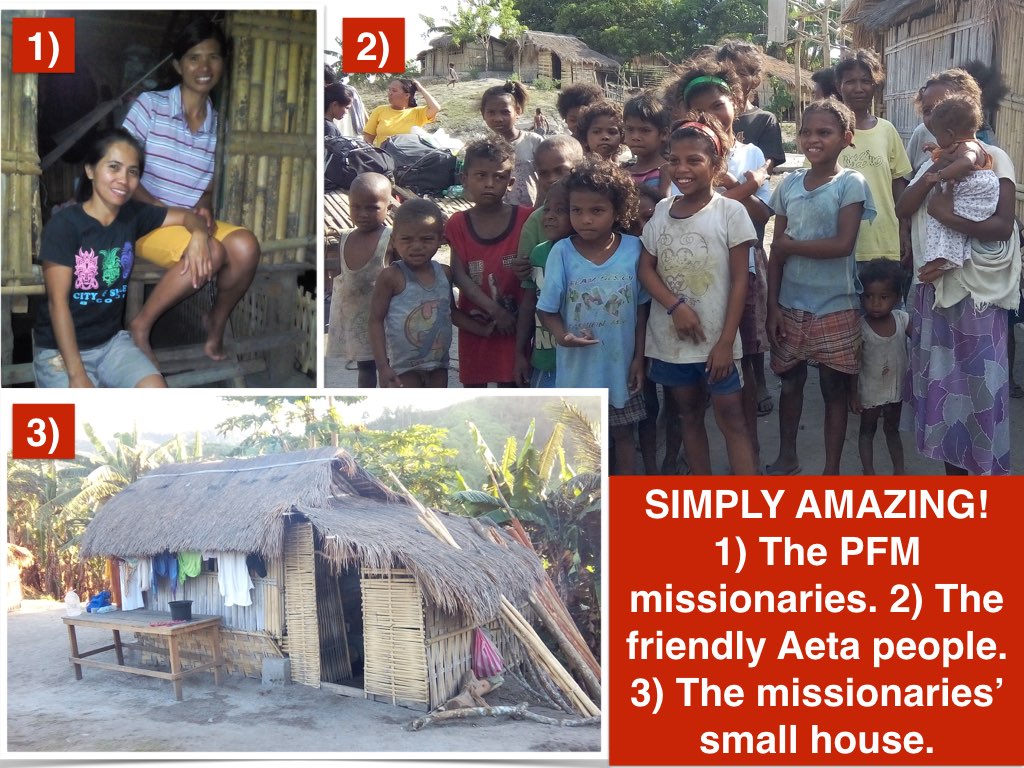 Marfeal Santiago When I enrolled for the Anthropology for Missions class, I did so because I did not want to have too much load for the Inter-semester because of a very important event in my life. I thought there would be less paperwork in Dr. Dizon's class. Well, not only was I mistaken, I was also surprised that there was a scheduled missions trip to Zambales, something I just couldn’t’ afford because of work and previous commitments. Nevertheless, when the Lord calls one person, He does so in ways that are not necessarily convenient for him. During the period of class lecture and discussions, I somehow acquiesced into the idea of going to the Aetas. Not that I am not used to going to remote areas occupied by minorities, I have had my fair share of cultural minority immersion and study trips myself in the past. But this time, it feels so much different because I would be going there as an observer, a tourist. Aside from that, the discussions on culture before the trip helped in instigating a desire to really find out what it is like in the mission field. So when the scheduled trip came, I only had one thing in mind—what can Adventism do to the Aeta community that is not offered by NGOs, government agencies (to which I used to be a part of), academic institutions (to which I also used to hail from), and other religious persuasions?  The first shock for me was the mode of transportation. It is not because of the carabao-drawn cart, there are plenty of those in the Philippines, but the travails of the travel across the barren lands of Zambales. On the way to the village, we met a vegetable vendor, who would walk several hours in the morning with her two young kids selling vegetables in the nearest town center. The resolute desire of these families to survive amidst such hardships is one feature of the culture that must not be overlooked. Our carabao-drawn cart drivers, all of them from the Aeta community we were visiting, also demonstrate such firm personalities to face life as it is offered to them. In all their efforts to lead the unyielding beasts, in all such hardships of labor, I saw not a single complaint in them. They were filled with glee and laughter was easy to get out of them. In the village itself, the disposition of most people were the same—happy. In terms of missions, such feature of the group can lead to either the downfall or the success of the mission. The Aeta people are generally happy and contented with what they have. They do not worry about the things that the outside world worries about. Therefore, the missions program must be designed in such a way as not to disturb such comforted lives, yet at the same time present the need for a Savior in the person of Jesus Christ. The people in the community is endowed with God’s gift of harmonious human relationships. Yes, they do not bother going down the town center to be legally married to each other, and while outsiders might think of this rampant practice as barbaric and maybe even regard it as sinful, I think they are not doing anything worse than the lowlanders would. I interviewed people because I was intrigued by how the women are rendered powerless because they do not have any legal hold to their husbands who might go philandering elsewhere when they are far away from the village. But the women I was asking couldn’t quite understand what I am talking about. I was asking them whether they are not afraid that their husbands might abuse them physically or might sleep with another woman. To my surprise, the idea of a delinquent husband (or wife for that matter) is unheard of. The women I was interviewing were in their 40s or 50s, so inexperience, idealism, and naiveté are non-factors. While a piece of paper is missing in a marriage, and getting one is more of a luxury and novelty than a necessity for them, the couples living as husbands and wives exemplify biblical principles of marriage. This is perhaps something that the missionaries can “exploit,” to say the least. Another point of reflection I would like to share here is my first real acquaintance with the missionaries who dedicate their lives and careers for the mission. Learning about their life—their hardships, heartaches, headaches, and the harshness of the sacrifice, considering the meager stipend they receive, I did not find a single missionary who is unhappy and wanting. On the contrary, a couple shared with me how providential it has been for them to work for the Lord. Leaving their potential illustrious careers in the cities, they went up to be missionaries. Doing so meant that they would only receive less than P8,000 per month, combined. Yet, as with all God’s providence, they were surprised that not only is the stipend sufficient for their daily needs, they could also provide financial aid to the natives from time to time, and there are still a few left to save. I find this story very inspiring and even shared it to my church. Truly, God is not lying when He said that “Seek ye first the kingdom of God and His righteousness, and all these things shall be added unto you.” We must understand that when the Lord “adds” things, it does not always mean further accumulation of wealth, more often it means decrease of needs and an increase in satisfaction. It is simply overwhelming to have met with those missionaries, who in many ways, are doing the work for the rest of us. The trip to the Aeta village in Palis, Zambales is a taste of immersion in itself, in spite of its shortness. I believe this is an important experience for any seminary students, as they are given the opportunity to feel to waters themselves, to make theology relevant and persistent. My overall experience, notwithstanding the small sacrifice of inconvenience, is that the trip definitely widened my horizon in this calling to minister for the Lord.
0 Comments
Your comment will be posted after it is approved.
Leave a Reply. |
Categories
All
|


 RSS Feed
RSS Feed